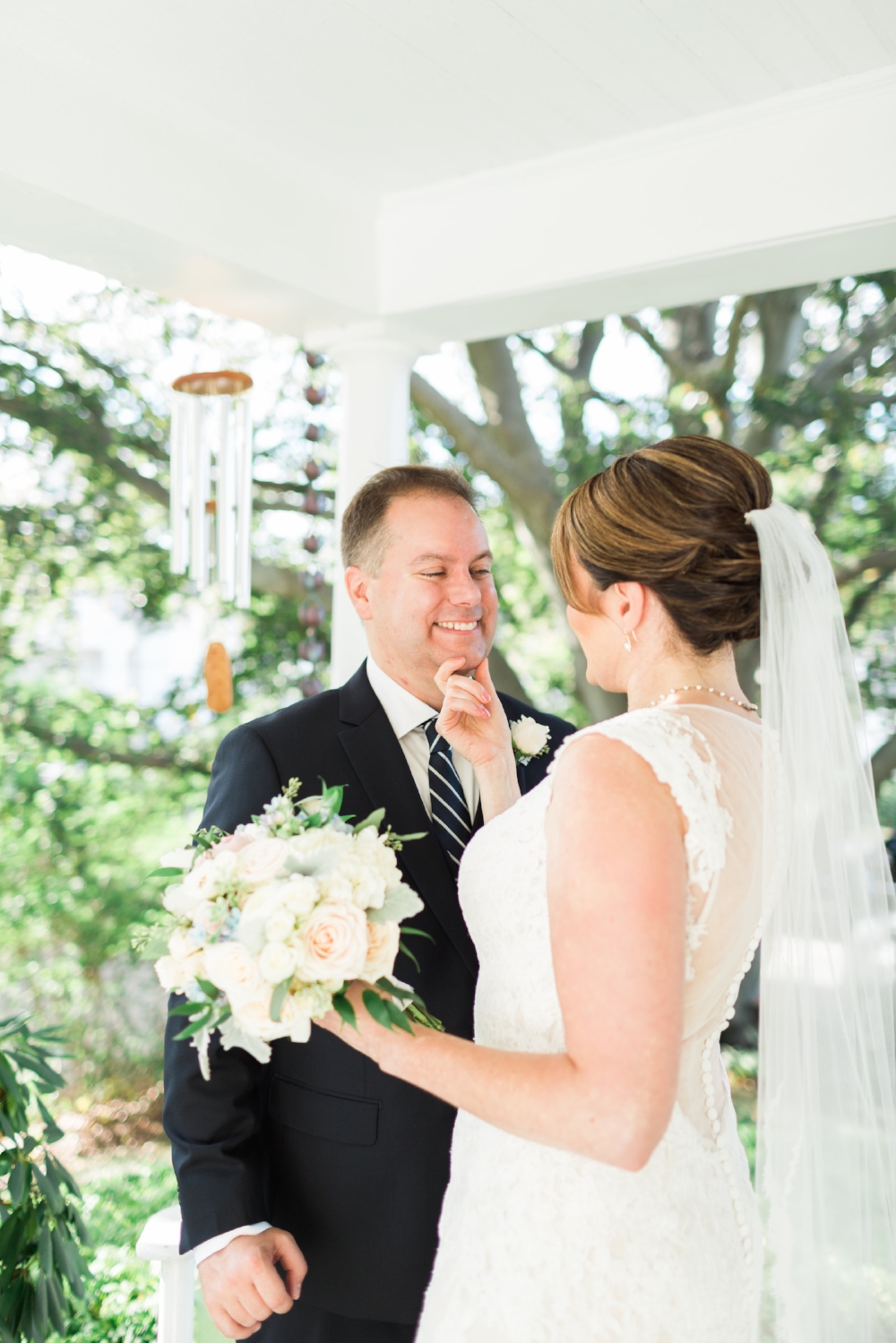My old next door neighbor—a handsome man in his early 30s who owned his own business but worked with his hands, who wore those surf shop t-shirts that were ubiquitous in the mid-late 1980s, even though we were on Long Island sound where the surf was anything but gnarly but status was everything—had a streak of white in his dark, wavy hair. Struck by lightning at Fenway Park—at least that’s the story he told us shortly after we all moved in, while flashing a smile that was equally bright. They were newlyweds, he and his wife, living on a cul-de-sac full of four-bedroom colonials filled with kids. The BMW parked in their driveway was a wedding gift from him to her. She drove it into the city five days a week where she’d shop at Filene’s Basement on her lunch break and bring me, the quiet teenage girl next door, items emblazoned with the Esprit logo. Soon enough they had kids—a girl then a boy—and I would be their go-to babysitter whom they’d pay in $20 increments. My parents would shake their heads and almost, but not quite, make me give them change. I swam in their in-ground pool and ate their Celeste frozen pizzas and wore her Guess jeans with the zippered ankles that she passed down to me one night with along with a $20 bill after an evening spent watching the two-hour block of Friday night sitcoms while their little ones slept.
He—with the shock of white in his hair, who, as the story goes, had been struck by lightning at Fenway Park—was a doting father and a charming neighbor, a stand-up man in a suburban fairytale who was left by his wife who traded in her city job and lunch break shopping sprees for a gig at the grocery store in the far end of town and a little condo all of her own. She was the first woman I’d ever known to just up and leave her previous existence behind.
On breaks home from college, I’d cruise downtown in my little sports car to go to the grocery store in the far end of town. Sometimes I’d spot her, sometimes not, dressed in jeans and flannel shirts instead of the high heels and shoulder-padded suits of which I was accustomed. From my vantage point as a supporting character in this suburban fairytale, I saw her grand detour as a character defect. I gawked like you gawk at a traffic accident, studying the carnage but unable to identify the root cause. I wanted to know: how did this happen? What if this happened to me? What if it didn’t just “happen;” what if she chose this path with clarity in her heart and soul? The family’s story has stayed with me for decades.
I’ve been studying my life—and the lives of others—for as long as I can remember. Sometimes I study too much and forget that experience is the best teacher. Sometimes I go about my life by portraying a seemingly pedestrian façade, but behind the scenes there are bolts of lightning touching down all around me. I absorb the shock until I am ready to put words to the experience, until the lesson becomes clear.
That’s what I was up to all last week as I read and reread—day after day after day—the first six pages of the book I picked up during a layover at O’Hare. The book, a collection of advice column letters, along with their responses penned by the no-longer-anonymous Cheryl Strayed, opened with this letter: Like an Iron Bell.
After the first reading, I put the book down, partly paralyzed and partly electrified and partially quite certain that I had just stumbled upon the crystal-clear diagnosis for the affliction that I’d wrestled with for the past decade-plus: how to authentically express love that may not be epic and may not be for the ages but that is no less awesome and deserves to be recognized and celebrated.
You simply must read it—whether the words “I love you” are effortless for you to speak or if you, too, have choked them back, waiting for more ideal conditions. I’ll wait. Here’s the link again: Like an Iron Bell.
I want everybody with whom my life orbits to read these words. I want us all to vow that we will never, ever hold back on the true expression of our feelings. That everything that means anything, really, is rooted in love and that—like those Esprit-emblazoned t-shirts my long-ago neighbor bought for me—there are infinite hues from which to choose.
Before I loved my current boyfriend—and before I overcame my fear of speaking these words to the object of my affection—my heart got tangled up with someone else’s. The experience was a little messy and a little unexpected for us both. I wasn’t ready to fall in love—but I did. In a flash of white light, we came together and, by the count of three, we were apart and rattled by it all. And while I don’t have a shock of white in my hair to show for the experience like my former neighbor , it changed me, inside and out.
If I had read Like an Iron Bell a few months ago, I would have had a framework upon which to cast my feelings and provide definition. I would have understood the varied hues of love enough to have ensured my use of those three electromagnetically charged words conveyed the just-right subcontext. But instead, I chickened out and continued to wait for an apex moment. A moment that, in hindsight, came and left much like the wild storm in the sky this morning.
I’ve always been one for using more words than necessary, and yet, in matters of love, I let the flow recede for years and years. No more. I, too, am hitting that iron bell like it’s dinnertime. Life’s too short to hold anything back.
Soundtrack: “Lightning Bolt” by Jake Bugg






